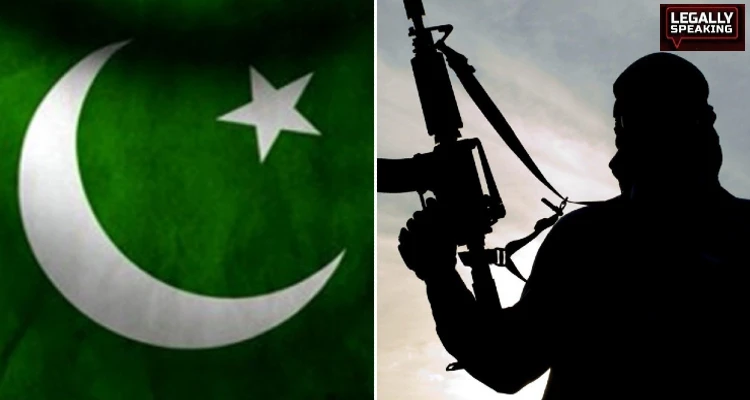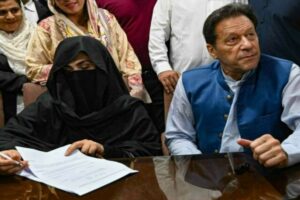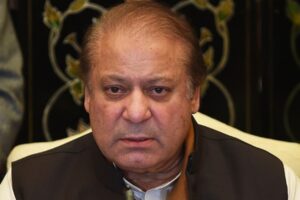
The judges of the Islamabad High Court (IHC) have urged the Supreme Judicial Council (SJC) to convene a judicial convention regarding the alleged interference of Pakistan’s Inter-Services Intelligence (ISI) in judicial matters, as per sources.
All seven judges of the IHC, except Chief Justice Amer Farooq, penned a letter to the Supreme Judicial Council and all judges of the Supreme Court, bringing to light the influence of senior ISI officials on judicial proceedings and the pressure exerted on judges.
In their letter to the SJC, six judges of the IHC—Justice Mohsin Akhtar Kiyani, Justice Tariq Mehmood Jahangiri, Justice Babar Sattar, Justice Sardar Ejaz Ishaq Khan, Justice Arbab Muhammad Tahir, and Justice Saman Fafat Imtiaz—requested guidance from the council concerning the “interference” of intelligence agencies in court affairs.
“We are writing to seek guidance from the Supreme Judicial Council (SJC) regarding the duty of a judge to report and respond to actions by members of the executive, including intelligence agency operatives, aimed at interfering with the discharge of official functions, qualifying as intimidation. Additionally, we seek guidance on the duty to report any such actions concerning colleagues and/or members of the courts supervised by the High Court,” the letter stated.
This request follows the recent Supreme Court ruling declaring the removal of former IHC Justice Shaukat Aziz Siddiqui illegal and directing that he be considered a retired judge. The letter explained, “This matter has arisen following the judgment dated 22.03.2024, in the case of Shaukat Aziz Siddiqui vs. Federation of Pakistan (C.P. No. 76 of 2018), where it was declared that Justice Siddiqui, the senior puisne judge of Islamabad High Court (‘IHC’), was wrongfully removed based on a report of the Supreme Judicial Council (‘SJC’) dated 11.10.2018, and should be deemed to have retired as a judge of the IHC.”
The letter also mentioned that Justice Siddiqui had been ousted after publicly alleging that ISI operatives, led by Major General Faiz Hameed (DG-C of ISI), were involved in determining the constitution of benches at IHC and interfering with proceedings of the Accountability Court Islamabad.
The verdict further observed that the SJC proceeded against Justice Siddiqui under the assumption that the truth or falseness of the allegations made by the former judge was irrelevant. It also noted that the SJC believed Justice Siddiqui failed to independently substantiate or prove the allegations.
The IHC judges, in their communication, noted that the code of conduct for judges prescribed by the SJC lacks guidance on how judges should react to and/or report incidents tantamount to intimidation and interference with judicial independence. They emphasized the necessity to inquire into and determine whether there exists a continuing policy by the executive branch to interfere in judicial affairs.
Furthermore, the IHC judges urged the convening of a judicial convention to address the matter of “interference of intelligence operatives with judicial functions and/or intimidation of judges undermining judicial independence.”
Moreover, the judges reiterated, “Such institutional consultation might then assist the Supreme Court in considering how best to protect the independence of the judiciary, establish a mechanism to hold accountable those who undermine such independence, and clarify for the benefit of individual judges the course of action they must take when facing interference and/or intimidation by members of the executive.”





